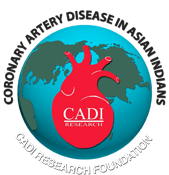Dash Diet
- The Dietary Approaches to Stop Hypertension (DASH) diet is widely promoted in the US for the prevention and treatment of high blood pressure. This diet has also been shown to be beneficial in the prevention and management of cardiovascular disease (CVD) risk in youth and adults with and without diabetes.1-3 Adherence to this diet is associated with a lower risk of coronary artery disease (CAD) and stroke among middle-aged women during 24 years of follow-up.4
- It is high in fruit and vegetables, low-fat dairy products, and wholegrain foods but low in saturated fat and refined sugar.2 The DASH diet enhances the blood pressure response to medications in people with high blood pressure. This effect is particularly marked in African Americans.5
- Lifestyle modifications, incorporating the DASH dietary pattern, physical activity, and weight loss in individuals who are obese, are effective in the prevention and treatment of high blood pressure. DASH diet alone can lower systolic blood pressure by 11 points; addition of weight management can decrease it by 16 points.6, 7
- The blood pressure reduction is even higher with DASH low sodium diet (1500 mg/day of sodium,8 and may allow many people taking high blood pressure medications to reduce or stop such medication.
- In Finland, the 40% reduction in sodium intake over 30 years was accompanied by a 10 mm hg reduction in mean blood pressure and 80% reduction in mortality from stroke.9 Finland had the highest CAD mortality in the world in the 70’s, now it ranks below 30 other countries due to this phenomenal success.
- In the US, it is estimated that a 50% reduction in salt intake (a reduction of 100 mmol/day or about 6 g of salt) would lower mean systolic blood pressure of the entire population by 5 mm Hg. This would result in a 20% lower prevalence of hypertension, and substantial reduction in CVD mortality (14% for strokes, 9% for CAD, and 7% all-cause mortality).10 These changes could prevent an estimated 150,000 deaths annually.11 12
- Other benefits of DASH diet include decrease in the risk of kidney stones and improvements in bone health and insulin sensitivity, especially when combined with lifestyle modification program that includes exercise and weight loss.6, 13-15
- The DASH diet is well accepted by the public and the benefit is not limited to people with high blood pressure. Therefore, this diet is recommended for people with and without elevated blood pressure.16
Sources
1. Liese AD, Bortsov A, Gunther AL, et al. Association of DASH diet with cardiovascular risk factors in youth with diabetes mellitus: the SEARCH for Diabetes in Youth study. Circulation. Apr 5 2011;123(13):1410-1417.
2. Liese AD, Nichols M, Sun X, D’Agostino RB, Jr., Haffner SM. Adherence to the DASH Diet is inversely associated with incidence of type 2 diabetes: the insulin resistance atherosclerosis study. Diabetes Care. Aug 2009;32(8):1434-1436.
3. Karanja N, Erlinger TP, Pao-Hwa L, Miller ER, 3rd, Bray GA. The DASH diet for high blood pressure: from clinical trial to dinner table. Cleve Clin J Med. Sep 2004;71(9):745-753.
4. Fung TT, Chiuve SE, McCullough ML, Rexrode KM, Logroscino G, Hu FB. Adherence to a DASH-style diet and risk of coronary heart disease and stroke in women. Arch Intern Med. Apr 14 2008;168(7):713-720.
5. Conlin PR, Erlinger TP, Bohannon A, et al. The DASH diet enhances the blood pressure response to losartan in hypertensive patients. Am J Hypertens. May 2003;16(5 Pt 1):337-342.
6. Hinderliter AL, Babyak MA, Sherwood A, Blumenthal JA. The DASH diet and insulin sensitivity. Curr Hypertens Rep. Feb 2011;13(1):67-73.
7. Blumenthal JA, Babyak MA, Hinderliter A, et al. Effects of the DASH diet alone and in combination with exercise and weight loss on blood pressure and cardiovascular biomarkers in men and women with high blood pressure: the ENCORE study. Arch Intern Med. Jan 25 2010;170(2):126-135.
8. Sacks FM, Svetkey LP, Vollmer WM, et al. Effects on blood pressure of reduced dietary sodium and the Dietary Approaches to Stop Hypertension (DASH) diet. DASH-Sodium Collaborative Research Group. N Engl J Med. Jan 4 2001;344(1):3-10.
9. Cutler JA, Roccella EJ. Salt reduction for preventing hypertension and cardiovascular disease: a population approach should include children. Hypertension. Nov 2006;48(5):818-819.
10. He FJ, MacGregor GA. Effect of modest salt reduction on blood pressure: a meta-analysis of randomized trials. Implications for public health. J Hum Hypertens. Nov 2002;16(11):761-770.
11. WHO. Prevention of cardiovacular disease. World Health Organization, Genewa Switzerland2007.
12. Havas S, Dickinson BD, Wilson M. The urgent need to reduce sodium consumption. Jama. Sep 26 2007;298(12):1439-1441.
13. Taylor EN, Fung TT, Curhan GC. DASH-style diet associates with reduced risk for kidney stones. J Am Soc Nephrol. Oct 2009;20(10):2253-2259.
14. Doyle L, Cashman KD. The DASH diet may have beneficial effects on bone health. Nutr Rev. May 2004;62(5):215-220.
15. Lin PH, Ginty F, Appel LJ, et al. The DASH diet and sodium reduction improve markers of bone turnover and calcium metabolism in adults. J Nutr. Oct 2003;133(10):3130-3136.
16. Harnden KE, Frayn KN, Hodson L. Dietary Approaches to Stop Hypertension (DASH) diet: applicability and acceptability to a UK population. J Hum Nutr Diet. Feb 2010;23(1):3-10.

